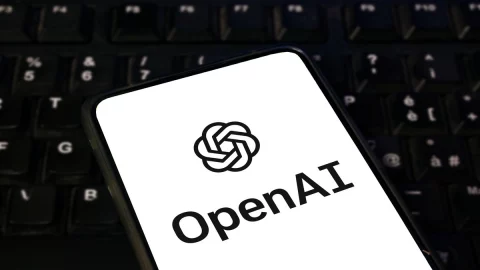The blockchain, a term that can be literally translated as "chain of blocks", is based on a computer network of "nodes". Through these intersections, it is possible to access an enormous number of interconnected devices that share information with safe and fast procedures. Thanks to this digital technology a secure transaction (for example) can be registered and verified, for the protection of both parties. Why a data chain? Because, as a sort of digital register, data and information can only be updated with the consent of the majority of those who participate in the system. When information is entered, a time stamp and a link to the previous block are created, so that the data is always verifiable and above all cannot be manipulated.
La blockchain technology was born in 2009 to respond to the need to record movements and have control over cryptocurrency activities. The block chain, in relation to the virtual currency, was in fact the database and the backup copy of all the operations that were carried out in bitcoin. The union between technology and finance is therefore natural, bro blockchain and investments, between cryptocurrency and listed companies, up to the main plus of this technology: security.
Companies that "open up" to the blockchain
This is why companies and blockchains, all over the world and in any sector (with particular attention to agri-food, with a certified and transparent production chain), have an increasingly close relationship. The latest official data shows that not even Covid-19 has managed to stop the growth of this new technology. The search forBlockchain Observatory & Distributed Ledger of the School of Management of Politecnico di Milano presented at the end of January, in fact showed that concrete projects grew by 2019% compared to 59, while announcements fell by 80%, a sign of a market that is moving away from the media hype to focus on more operational initiatives and the creation of ecosystems.
The data from the Observatory also show that Italy remains in the top ten countries with the most initiatives, despite the slowdown in business investments, which in 2020 fell by 23% compared to 2019. Yet it is increasingly frequent to come across listed companies that rely on this technology to develop new services or new initiatives. How to say: invest in blockchains it is, not only in perspective, an innovative and sustainable choice.
And so in Italy we range from initiatives by big energy companies such as A2A in the agricultural sector, to investments oriented towards corporate financial management and in smart grids. In the first case, A2A Smart City (which develops and manages enabling technological infrastructures for integrated and connected digital services), is developing projects related to smart agriculture, that is, in support of one supply chain leaders – distribution chain – fully traceable. In practice, the authenticity of the collected data is exploited to manage the IT protocols of the Smart contract within the blockchain itself.
At the end of February, however, the conclusion of the experimentation phase of the System, Onboarding and Know your customer project on DLT/Blockchain technology, promoted by CeTIF - Catholic University together with Intesa (Ibm Group) and CherryChain, was announced. To understand what kind of development this project may have, just observe that among the companies that have joined there are Assolombarda, Banca Mediolanum, Banca Popolare di Puglia e Basilicata, Bnl, Cedacri, Cerved, Confindustria digitale, Enel, FCA Bank, Fondazione Cariverona , Iccrea, Intesa Sanpaolo, Mps, Poste Italiane, Lombardy Region, Telepass, Ubi Banca, Veneto Sviluppo.
As we said, talk about blockchain means to refer to a shared and immutable data structure. A virtual register whose entries are grouped in chronologically concatenated blocks, and whose integrity is guaranteed by the use of cryptography. Basically, once written, its content can no longer be modified or eliminated, unless the entire structure is invalidated. The keyword that connects to this new technology is "security", a hot topic on the web and throughout the digital world.
It is no coincidence that the Polytechnic Observatory highlights that in 2020 "decentralized finance has seen the multiplication of applications, users and invested capital". Internationally, just to give a recent example, in February Goldman Sachs created a service of digital custody for secure storage of cryptocurrencies and smart contracts. Many of the companies are financial, as there is an increase in applications of the blockchain in the financial field.
How Italian banks move
Even in Italy, albeit with some delay, the initiatives related to fintech they are multiplying. Banca Sella, for example, has recently launched Fabrick, proposed as a collaborative evolution of open banking. A platform that aims to aggregate all the players involved in this industry, guaranteeing customers access to an environment in which it is possible to concretely integrate different systems and services.
Among the best in class of Italian fintech, Banca Generali must certainly be mentioned, which already in 2018 had chosen to work alongside a technological partner such as Reply to offer its customers a new fund focused on enterprises at the forefront of using blockchain. A forward-looking choice, testifying to the innovative capacity of Gian Maria Mossa, who has led Banca Generali since 2017. The vehicle's strategy envisaged identifying a main group of large-cap listed companies, active in the digital block chain, in order to guarantee adequate liquidity to the fund itself.
Banca Generali is closely following the evolution of blockchain applications, the main one of which is certainly that linked to cryptocurrencies, which have reached an important dimension with an ever-growing trend. The confirmation is that the institution of the Trieste group announced in January the entry into the capital of Coinage, a fintech active in cryptocurrency services, in particular bitcoin.
General Bank participated in a capital increase operation of 14 million Coins and has also activated a partnership of a commercial nature, which envisages the distribution by the institute of fintech products and cryptocurrency services. Among the wallet providers, Conio exploits exclusive technology and patents aimed at guaranteeing safe custody and reducing counterparty risk, while facilitating trading at the same time.




